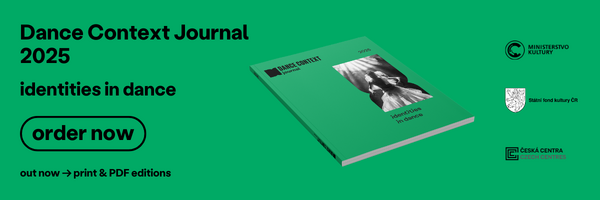THALIA AWARDS OR LET’S NOT SPEAK ABOUT DANCE
The Thalia Awards are changing - they must react to what is going on in the theatre world; newly they will not be presented after a calendar year but after a season, the categories are transforming too… these and other changes we can welcome with gratitude. The head of the Actors’ Association, Ondřej Kepka, has spoken about them extensively in an interview for MF Dnes. And you don’t need to be too bright a reader to notice one thing that often happens with the Thalias: Where is dance?
In the whole interview Kepka did not say a word about dance. It is like in mass media, where names of dancers hardly ever make it to the leads of articles covering the awards and dance laureates should feel lucky enough to be featured in the list of award winners. Exceptionally, some female dancers wear extravagant dresses that later appear in flashy pictures serving as illustration photos.
Neglecting dance in (public) media became the main concern of Daniela Machová’s column published following last year’s Thalia Awards ceremony. The present case is even sadder. The interview covered almost everything, including contemplations on the reputation of the Thalia Awards. Though much in the Awards policy can be reproached (especially chronic ignoring of independent theatres), they still have their prestige in the dance world, maybe even greater than in the field of drama. It is regrettable that one whole category, a specific genre. is ignored not only by a culture editor, but also by the director of the Actors’ Association which presents the Awards.
I often observe how people who are not regular or keen theatregoers feel suspicious about dance performances. Afraid of not being able to understand them (and hence enjoy them) they rather don’t buy tickets for dance performances at all, they don’t even try. But how can this barrier of fear be broken if dance events are covered almost exclusively by specialised media?
More columns to be found HERE.



